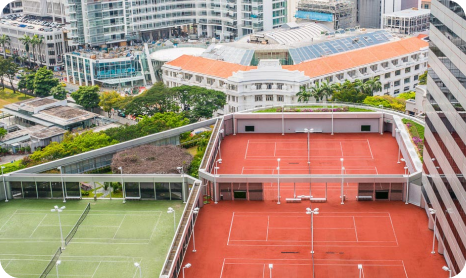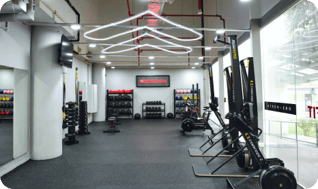What is Ramadan?
Every year, Muslims from all over the world observe the holy month of Ramadan by fasting for a month from sunrise to sundown. In Singapore, people fast for around 14 hours and it involves avoiding eating, drinking, or smoking.
The purpose of fasting is to take your mind away from everyday things and escape hedonistic and materialistic pursuits, so you can reconnect with your faith, your family and your community.
There are two important meals of the day; a pre-dawn meal (sahur) taken before sunrise (about 5.40am) and a break-fast meal (iftar)at sunset (about 7.10pm).
What happens to our bodies when we fast?
During a period without food, the body starts using up its energy reserves to create energy. Firstly, your body will use the glucose it has from the last digested meal. If you don't eat again, the glycogen reserves from the liver and muscles will be broken down into glucose. Note that the body enters into a fasting state eight hours or so after the last meal.
Later in the fast (once the glucose runs out), the body will move on to breaking down fat reserves. This is when people start to lose weight. The problem is that with a prolonged fast, the body starts using protein for energy, and this makes people feel tired, lack concentration and lose weight. However, if you are getting healthy meals prior to and post fasting, you can prevent these common side effects.
/01%20Pages/Blog/2022/April/hydration%20is%20key%20during%20ramadan.webp?width=718&name=hydration%20is%20key%20during%20ramadan.webp)
4 Tips For A Healthy Ramadan:
TIP 1
Hydration is key! Make sure you drink lots of water, herbal tea and watery foods such as soups and fresh raw vegetables. Start by drinking two cups water at the break-fast meal, then a cup every hour until you go to bed. You should also aim to drink around 2-3 cups of water at the pre-dawn meal.
TIP 2
Try to keep active. An evening walk or light exercise after dinner will help to add movement to your day, even if it’s just foam rolling, mobility exercises, or yoga. This will help improve your digestion and make you feel more energised. Make sure you're getting adequate fluids during and after workouts and take an electrolyte drink if you are exercising outdoors.
/01%20Pages/Blog/2022/April/try%20and%20keep%20active%20during%20ramadan.webp?width=718&name=try%20and%20keep%20active%20during%20ramadan.webp)
TIP 3
Spend some time planning your schedule for the week ahead – when to train and what to eat. Listen to your body. Some days won’t go as planned (can’t lift as heavy, gassing out, feeling lethargic etc). It's ok! Cut yourself some slack (drop the weight, take a little more recovery time). Health is more important, especially when you're mostly low on glycogen stores and dehydrated by the evening. Also, make sure you’re getting adequate amounts of sleep because this is when your body’s natural healing and recovery processes are most active.
TIP 4
Many people find it hard to wake up at dawn and eat the "suhoor" (the meal before daylight fasting). However, this meal is extremely important and will make a huge difference to your physical and mental state during the next 12 hours of fasting.
This meal should include:
- Fresh vegetables.
- High fibre complex carbohydrates, such as rye bread, oats, and barley. These take longer to digest, and hence help to sustain your energy levels longer throughout the day.
- High protein food such as dairy products and eggs.
- Unsaturated good fats such as avocado, tahini, nuts and seeds.
- Avoid very fatty, fried foods. Choose fresh raw/steamed/ stir-fried/ baked/ grilled foods.
- Avoid refined carbohydrates (sugar and white flour), such as cakes, biscuits, chocolate, and sweets. Overconsumption of sugar results in spikes in your blood sugar levels, which will leave you with more sugar cravings and will disrupt your metabolism.
- Avoid or reduce caffeine-based drinks such as tea, coffee, coke, and diet coke. Caffeine is a diuretic and stimulates faster water loss through urination.
- Avoid very salty and very spicy food such as cold cuts, smoked fish, olives and pickles, salty cheeses, processed sauces, fast foods, and heavily processed snacks.
-
Include variety - your body needs good nourishment to compensate for the stress of fasting, so eat a variety of foods during the evening such as whole grains, vegetables, fruits, lean protein and healthy fats (olive oil, nuts and seeds, oily fish).
Remember to eat slowly and do not overeat - oversized meals might make you feel heavy, bloated or may cause heartburn.
The perfect Iftar (break-fast) Meal:
- Water with lemon and mint
- Homemade vegetable soup or vegetable salad
- Chicken breast / baked salmon
- Stuffed vegetables with meat (zucchini/eggplant/grape leaves)
- Cooked lentils, brown rice or other beans
- For dessert, have a small piece of dark chocolate, a cup of creamy Greek yogurt with a sprinkle of nuts and seeds, or a small serve of frozen yogurt or gelato.
The perfect Sahur (pre-dawn) Meal:
- Lots of water and herbal tea
- Healthy green smoothie
- 2 fried/poached eggs or a green omelette
- 1-2 slices of rye bread or wholemeal bread
- Oat porridge cooked in soy/almond milk with chopped fruits, nuts, and seeds
- 2 to 3 dates (high in vitamins such as potassium and magnesium and a good source of fiber and carbohydrates).
Wishing everyone that is celebrating a happy, healthy and blessed Ramadan!
/01%20Pages/Blog/2022/April/oats%20with%20fruit%20and%20nuts.webp?width=718&name=oats%20with%20fruit%20and%20nuts.webp)


.png?width=301&height=187&name=Website%20Navigation%20Images%20(3).png)

-1.jpg?width=1984&height=1196&name=UFIT%20Club%20Street%20Front%20(4)-1.jpg)





/01%20Pages/Blog/2022/April/top%20tips%20for%20healthy%20fasting%20during%20ramadan.webp?width=300&name=top%20tips%20for%20healthy%20fasting%20during%20ramadan.webp)
/01%20Pages/Blog/2022/April/fish%20and%20vegetables.webp?width=718&name=fish%20and%20vegetables.webp)